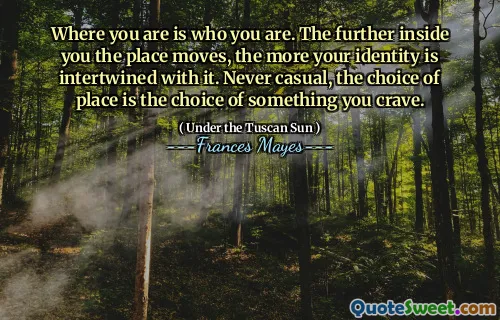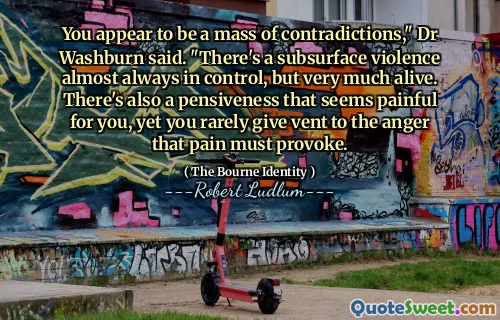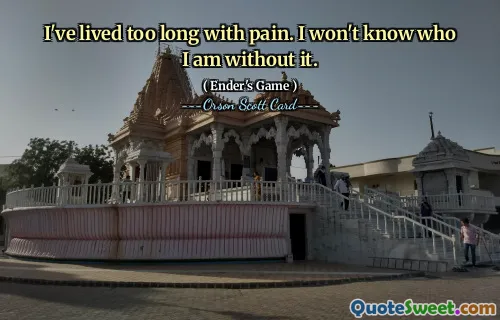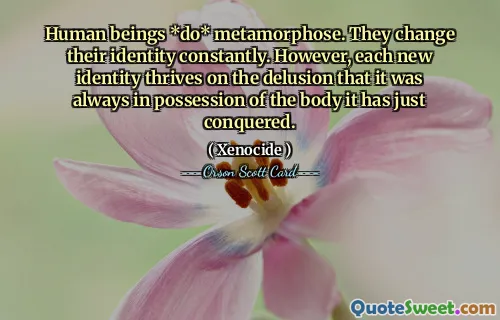
It came to my house. It sat on my shoulders. Your shadow is yours. I told it so. I said it was yours. I have carried it with me too long. I give it back.
This poignant quote explores the complex relationship humans have with their inner selves and the metaphors of shadows as representations of aspects we may wish to hide or recognize within us. The imagery of something arriving at one's home and settling on the shoulders suggests an intimate encounter with an inevitable part of oneself—perhaps burdens, memories, or unacknowledged truths—that one cannot easily dismiss. The statement 'Your shadow is yours' emphasizes personal ownership over these hidden or subconscious facets, acknowledging that they belong to us by nature, yet often go unrecognized. The act of telling this presence, 'I told it so,' indicates a moment of confrontation and declaration—accepting its sovereignty or perhaps commanding it to be acknowledged. The speaker then reveals a sense of relief or finality in the confession: 'I have carried it with me too long. I give it back.' This signifies a liberation from the weight of internal darkness or unresolved feelings, metaphorically returning the shadow to its rightful owner—recognizing the importance of accepting one's complete self, including the parts that are uncomfortable or difficult. Such a gesture underscores themes of self-awareness, reconciliation, and healing. It prompts reflection on the nature of our inner struggles and the importance of embracing all aspects of our identity, rather than suppressing or denying them. The quote beautifully encapsulates the human journey towards understanding and relinquishing burdens that we have carried for too long, ultimately advocating for self-acceptance and inner peace.











